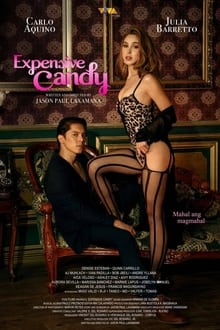
A story about Candy a sex worker and a school teacher.
You May Also Like

Edvard Munch was one of the most important artists in the period between the 19th and 20th centuries. His motif Skrik (The Scream), repeated in several techniques, became part of the 20th-century world subconsciousness – an image of fear and loneliness most people probably know, even if they have no idea who created it.

11 year-old Milton Adams is growing up in an uncertain world. With his parents constantly stressing about their careers and finances, and the neighborhood bully tormenting him, Milton feels his whole world is in crisis. But when his Grandpa Howard comes to visit, he discovers anxiety about the past and worrying about the future only make things worse and prevent him from finding true happiness moment to moment.
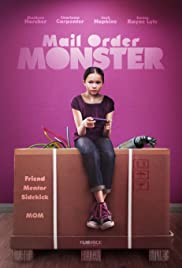
A girl seeks help and guidance from a robot monster to cope with the bullies at school and her father’s new girlfriend.

Butterfly Crush is a modern love story, starring award winning Australian actress Amelia Shankley, and set against the backdrop of the Sydney music industry. The song and dance duo, Butterfly Crush are about to break big, and are up for the Australasian Song Awards, but their chance at success is jeopardized when half of the duo; Eva, gets involved with a Kings Cross cult, the “Dreamguides”, deep into astrology and virtual dreaming. Moana must risk everything to save her, in this brand new contemporary feature about music and love.
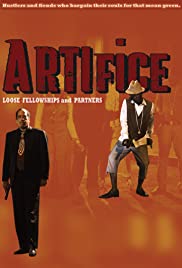
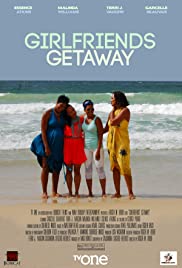
Set in Trinidad and Tobago, the comedy which is described as Waiting To Exhale meets The Hangover, Girlfriends’ Getaway is about four friends who take a trip to the Caribbean to celebrate two of their friends’ birthdays. One thing leads to another and they get into a bit of trouble.
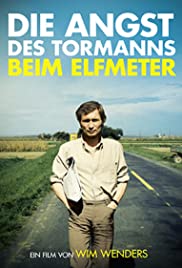
The Goalie’s Anxiety at the Penalty Kick is a 1972 German language drama film directed by Wim Wenders. It was adapted from a novella by Wenders’ long-time collaborator Peter Handke. A goalkeeper is sent off during a game for committing a foul. He spends the night with a cinema cashier, whom he afterwards kills. Although a type of detective film, it is more slow moving and contemplative than other films of the genre. It explores the monotony of the murderer’s existence and, like many of Wenders’ films, the overwhelming cultural influence of America in post-war West Germany.

Eleven year old Maria has lost her little brother to cancer. Having disappeared into herself, her mother is no longer there for Maria and her father struggles to keep the family together. Maria meets Jacob, who is the same age as she, but with a completely different attitude. Jacob is outgoing, exciting, funny and has wisdom way beyond his tender years. He gradually pulls Maria out of her shell and enables her to come to decisions which will affect her entire life.
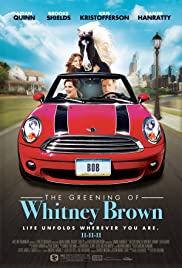
Whitney, a spoiled pre-teen from Philadelphia, is forced to move to the country when her parents feel the squeeze of economic hard times. A fish out of water, far from her comfort zone, she befriends an amazing horse, and undertakes a misguided journey back to her old life, only to discover that her family is her home.

“Tomorrow’s Promise is a film about vacantness. Which physically does ‘begin’, reversed, upside down on the screen […] suddenly another such position is taken (not in reverse), this time by a male figure and soon, in this same section, the girl of the reversed image reappears posed in a different way; a way obsessed by ‘mood’. Then a technical play of in-the-camera-editing occurs, more intense, brighter than in the first, reversed section. There are several inter-cuts which serve, in this and each subsequent section unto the end, as relative links into the final section: which is actually the ‘story’. The story the protagonist and her hero try to tell in their way is apophysis; except that ‘pictures’, clear visions take the place of words. My film could have been edited with precise tensions and a lucid straight narrative, but it was my aim to ‘re-create’ the protagonist of my personal life.” – Edward Owens

Ten years ago, Ginny, an Architecture student, and Marco, a History professor, began a one-of-a-kind and unpredictable love story. In the five years that they were together, they brought out the best in each other, which included Marco’s unrealized dream of becoming a chef. Together, they worked towards their dream of opening up a restaurant, but when Ginny realized her own pursuits were different from his, she rejected his wedding proposal and left the country for a Masters degree in Architecture. At present, Ginny co-owns a one-stop Architecture and Interior Design firm specializing in Restoration. She receives an email from Marco, which was written and sent after their break-up, meant to be read four years later. It makes her feel even more regretful of leaving the love of her life.

Bimo need to make a decision to change his fate in Muara Tapah Village or he will regret for the rest of his life. Now, he has to face the reality, a creature allied with the devil is targeting his wife and future child. There were many regrets piled up in his heart. He also can no longer decide who is worthy of trust. Pak Kasno and Pak Tingen, his teaching friends? Mr. Village Head and his wife? Or the midwife who has been helping his wife?